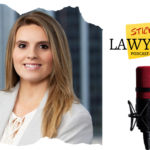Business Development
Generational Differences and Business Development? Just Ask.
By John Reed | 02.15.2020
We are fed an almost constant diet of advice these days about doing business development across the generations, most of it based on anecdotes and stereotypes.
Generation X, Y, and Millennials, we’re told, live on Twitter and prefer to conduct business via text — preferably while working on a laptop at a coffee shop. Baby Boomers are seen as still working out the intricacies of email and prefer face-to-face interactions. Older attorneys in the Silent Generation are perceived as far from tech-savvy and unable to make heads or tails of social media.
Regardless of whether these generalizations are fact or fiction, attorneys of all years feel the pressure to change their methods and modes of communication to adapt to other generations.
It all sounds rather exhausting, and many lawyers might see this as just too many hoops to jump through, with little promise of any new work.
But what if there were a really easy business development technique that would bridge the generational divide immediately and provide absolute clarity on what the prospect wants? It would probably make the marketer who came up with it millions — if it didn’t already exist.
Quite simply, if you want to know what a prospect from another generation wants, just ask.
Need to find out how a Millenial would like you to contact her? Ask her about her preference. Worried you’re not meeting with a Boomer face-to-face? Ask if he’d like more in-person visits. Fretting because you figured out Twitter just to reach that lucrative millennial market but they never respond? Ask prospects if they consider that creepy and would prefer email or the telephone.
It really is as simple as that. The thing is, it’s so simple, that very few of your competitors will think to do it. They will be tying themselves in knots to figure out how an entire generation of potential clients likes to communicate, without wondering what an actual living, breathing person prefers.
You can differentiate yourself and establish your intergenerational business development rock star credibility by asking a few simple yet powerful questions at the outset:
- Meetings, phone calls, email, or text?
- Weekly, monthly, quarterly, or as necessary?
- LinkedIn, Facebook, Twitter, or none?
By incorporating these inquiries into your relationship-building efforts, you not only avoid stereotypes and dangerous assumptions but also demonstrate your sincere interest in the other person, which helps build rapport and trust – the foundations of business development.
So disregard the marketing pundits who pontificate about the bridging the gap between generations. The attorneys who are winning and keeping business – no matter their ages or the ages of their prospective clients – are those who just ask.
And what client doesn’t value the lawyer who puts them first, front, and center from the very start?







